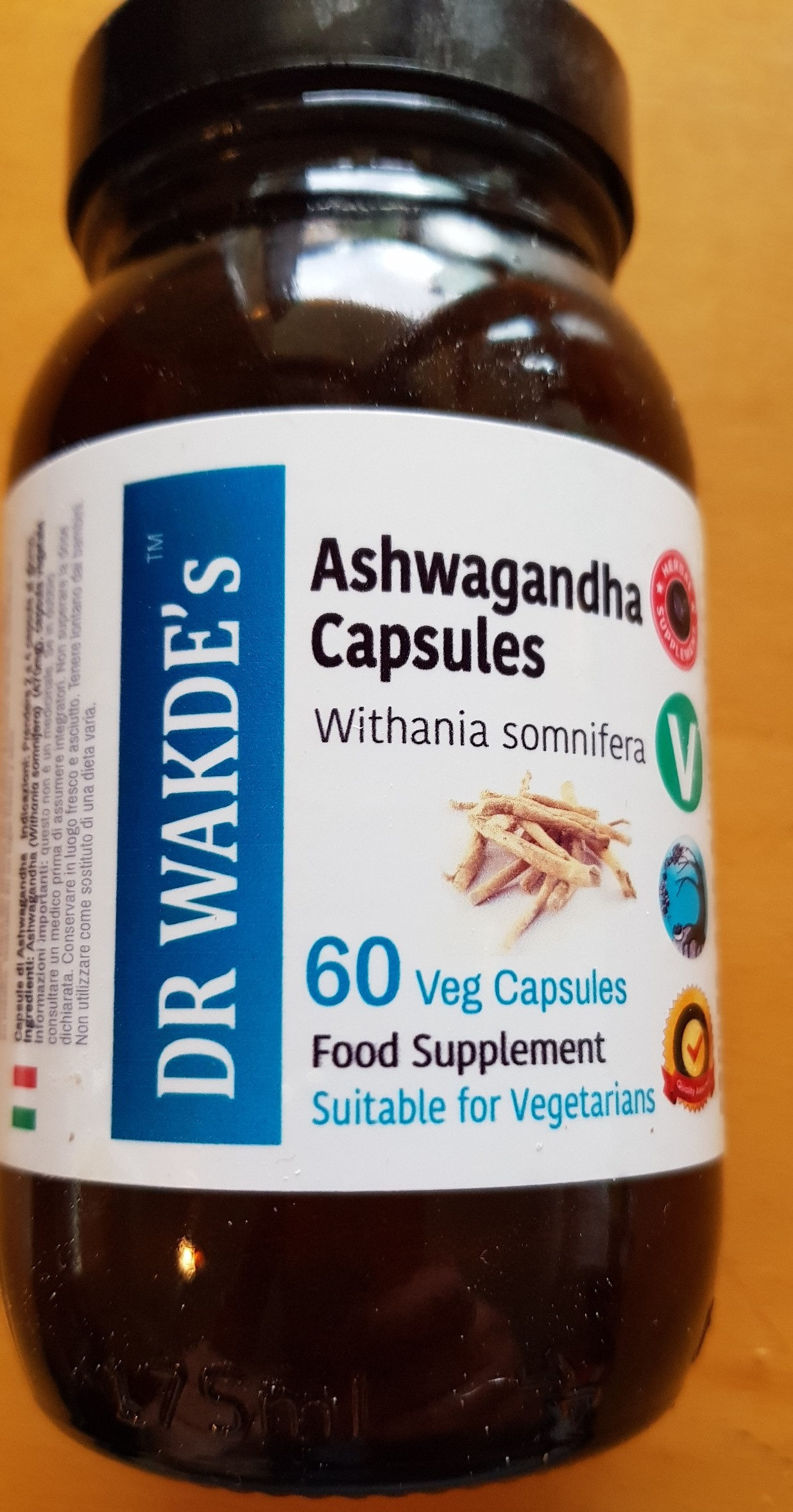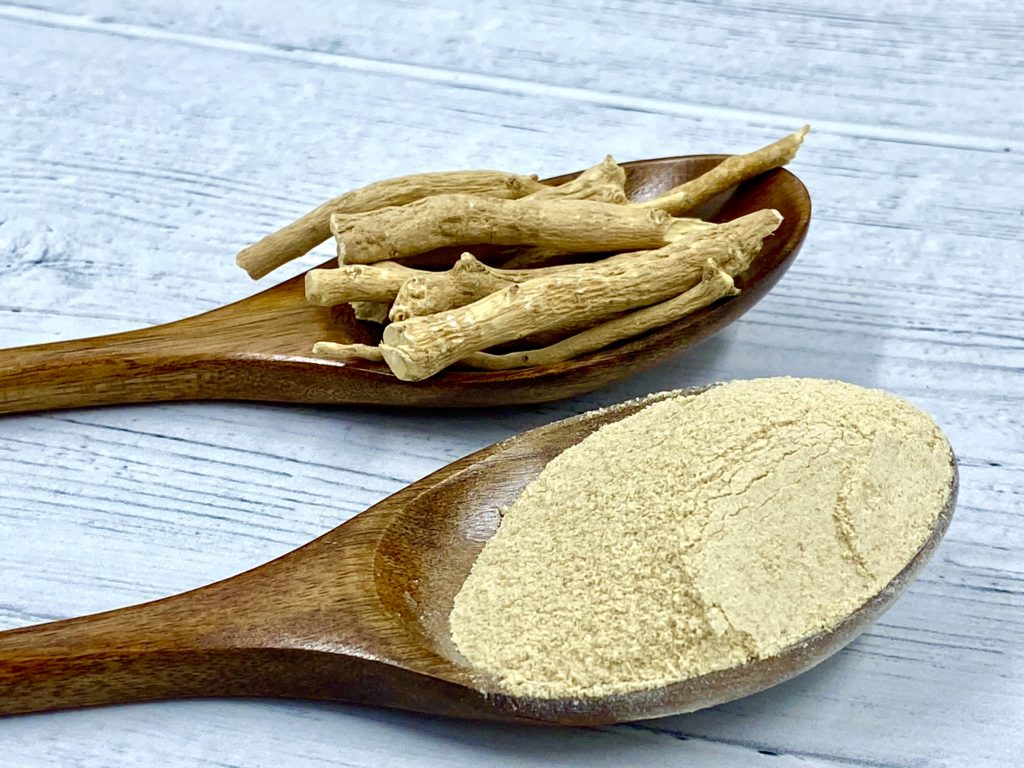Summary
– Ashwagandha: What is it?
– Ashwagandha and Ayurvedic medicine
– Virtues of the ashwagandha
– Contraindications of the ashwagandha plant
– Ashwagandha: where to find it and at what price?
Ashwagandha is an Indian plant precious in Ayurvedic medicine because it regenerates the body. It is mainly its roots that are used because they contain more active ingredients than the leaves.
Let’s discover all its benefits in detail.
Ashwagandha: What is it?
Ashwagandha in Sanskrit, and “Indian ginseng” in English or “Withania somnifera” is a plant of the Solanaceae family.
– The plant is harvested, then dried before being reduced to powder.
– Its flavour is bitter and astringent with a cereal fragrance.
– It contains alkaloids, lactones, glucosides and flavonoids, mineral salts, fatty acids and trace elements (including iron).
Good to know: In Sanskrit, ashwagandha means “with the strength of a horse” or “with the energy and sexual vitality of a horse.”
Ashwagandha and Ayurvedic Medicine
In India, Ayurveda, or Ayurvedic medicine, is a sacred therapeutic science, a philosophy and art of living, dating back more than 4,000 years.
This medicine is based on the idea of the 3 doshas: Vâta, Pitta and Kapha, each made up of 2 elements. Each human being is born with an individual part of each dosha, often one or two dominant. Ayurvedic medicine tends towards a life in harmony with the fundamental constitution. It seeks to discover what helps to “stay healthy and be happy” while identifying what makes one sick or unhappy.
For balance, it is necessary to choose activities, foods, or plants that are the opposite of the predominant dosha(s) characteristics to soothe it/them.
In India, the ashwagandha root has an essential role in Ayurvedic pharmacopeia, as does ginseng in Chinese medicine. It is used to regenerate the body.
Good to know: In Sanskrit, Ayur means “life,” and Veda means “science” or “knowledge.”
Virtues of ashwagandha
The benefits of ashwagandha on the body are numerous:
– It strengthens the immune system.
– It plays an anti-inflammatory role and relieves pain (Vata shamak) of osteoarthritis, rheumatoid arthritis, sciatica, etc…
– It makes thoughts clearer and strengthens memory.
– It restores strength and calms down in asthenia cases, lack of sleep, overwork, weakness, depression, etc. It is recommended in periods of recovery or examination.
– It plays an antioxidant role.
– It helps in the healing of tissues in cases of injuries, wounds, irritated skin.
– It maintains healthy heart muscles and circulation.
– It acts in respiratory disorders.
– It plays an aphrodisiac role.
– In the Indian tradition, it is useful for flexibility.
Good to know: Studies are looking for the benefits of ashwagandha to treat diabetes, cancer, Alzheimer’s disease and Parkinson’s disease.
Contraindications of the ashwagandha plant
The plant of ashwagandha is contraindicated at:
– Pregnant women;
– Nursing mothers;
– young children;
– in general, anyone with severe congestion and thyroid problems;
In Ayurvedic medicine, ashwagandha should not be used in cases of high Ama.
Please note: for your health care, it is essential to seek advice from your doctor, pharmacist, naturopath, organic store advisor or herbalist. The long-term effects of ashwagandha are still not well known.
Ashwagandha: where to find it and at what price?

Ashwagandha is available in medicinal oil, powder or capsules.
You will find them for sale:
– in certain herbalists;
– in organic stores;
– in health food stores;
– by mail order;
– on the Internet.
Depending on the points of sale and the quality of the plant, you will find, for example:
– 120 capsules of dry extract for about $30;
– 100 pills for about $10.


